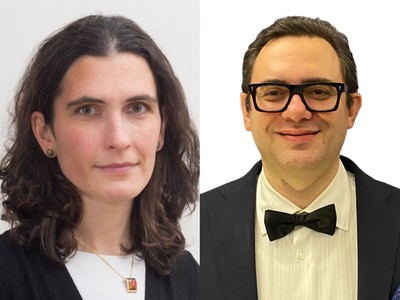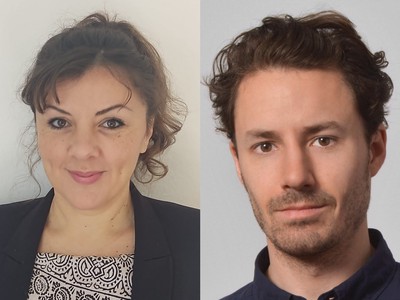CySec Gets 5 Grants from WWTF
As part of the ICT25 Call, the Vienna Science and Technology Fund (WWTF) invited scientists to submit research proposals addressing fundamental questions in information and communication technologies (ICT). Funding per project ranged between €500,000 and €880,000. Out of 84 short proposals and 24 full proposals, 12 excellent projects were selected for funding, based on peer review and an international jury decision. The formal approval was made by the WWTF Board on 29 September 2025.
Five newly funded projects under the WWTF ICT25 Call involve CySec researchers at TU Wien, underlining the Center’s strength in cybersecurity, cryptography, distributed systems, and verification.
PROMT: Probably the Best Moment to Terminate
PI: Laura Kovacs (TU Wien, CySec)
Co-PIs: Ezio Bartocci (TU Wien, CySec), Krishnendu Chatterjee (ISTA)
Funding: €879,423
PROMT develops new algorithmic foundations and tools for analyzing probabilistic programs, which are increasingly used in AI, cybersecurity, and cyber-physical systems. The project addresses long-standing open questions in program termination, introducing automated reasoning techniques and the analyzer Polar to ensure reliability of software under uncertainty.
CROSS: Optimal Cross-Chain and Cross-Layer Protocols
PI: Georgia Avarikioti (TU Wien, CySec)
Co-PI: Matteo Maffei (TU Wien, CySec)
Funding: €799,910
CROSS pioneers scalable, secure blockchain interoperability. By combining optimal off-chain light clients, advanced bridge protocols, and a new compositional security framework, the project enables trust-minimized cross-chain communication. Its results aim to unlock decentralized finance and broader blockchain applications across heterogeneous ecosystems.
Cross-Domain Privacy-Preserving Protocols and Symmetric Cryptography
PI: Elena Andreeva (TU Wien, CySec)
Co-PIs: Arnab Roy (University of Innsbruck), Georg Fuchsbauer (TU Wien, CySec)
Funding: €797,739
This project addresses the gaps between lightweight symmetric cryptography for IoT and the computationally heavy cryptography used in multi-party computation (MPC) and zero-knowledge proofs (ZKP). By designing new symmetric-key primitives and adapting them for privacy-preserving protocols across domains, the project will deliver the first practical algorithms bridging IoT, cloud computing, and blockchain-based systems.
Verifying Without Loss of Generality
PI: Adrian Rebola Pardo (TU Wien)
Co-PI: Georg Weissenbacher (TU Wien, CySec)
Funding: €635,107
This project enhances hardware verification by enabling engineers to apply “without loss of generality” reasoning directly in hardware description languages. By bridging domain expertise with automated verification, the project promises more scalable, safe, and efficient verification workflows for chip and accelerator design.
Foundations and Applications of Resource-Restricted Cryptography
PI: Karen Azari (University of Vienna)
Co-PIs: Krzysztof Pietrzak (ISTA), Dominique Schröder (TU Wien, CySec)
Funding: €878,848
The project establishes theoretical foundations and practical applications for resource-restricted cryptography (RRC), a paradigm where security relies on significant but feasible resource costs. Beyond proof-of-work, RRC has untapped potential for privacy-preserving protocols. The project develops new primitives and applies RRC to enhance privacy and security in modern cryptography.
The success of these five projects highlights the prominent role of CySec researchers at TU Wien in shaping the future of trustworthy digital systems, advancing foundational theory while enabling practical breakthroughs in cryptography, verification, and blockchain security.





